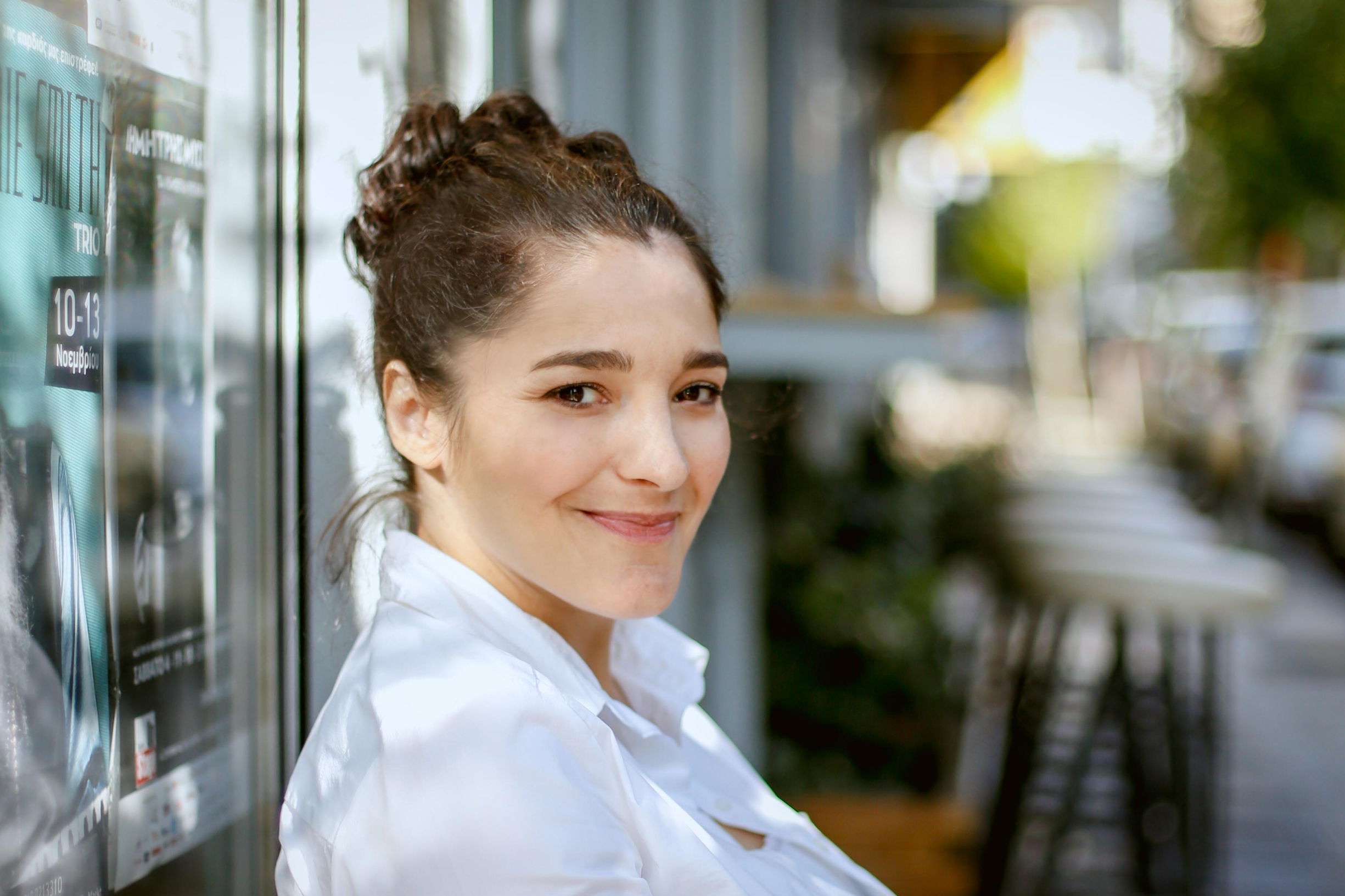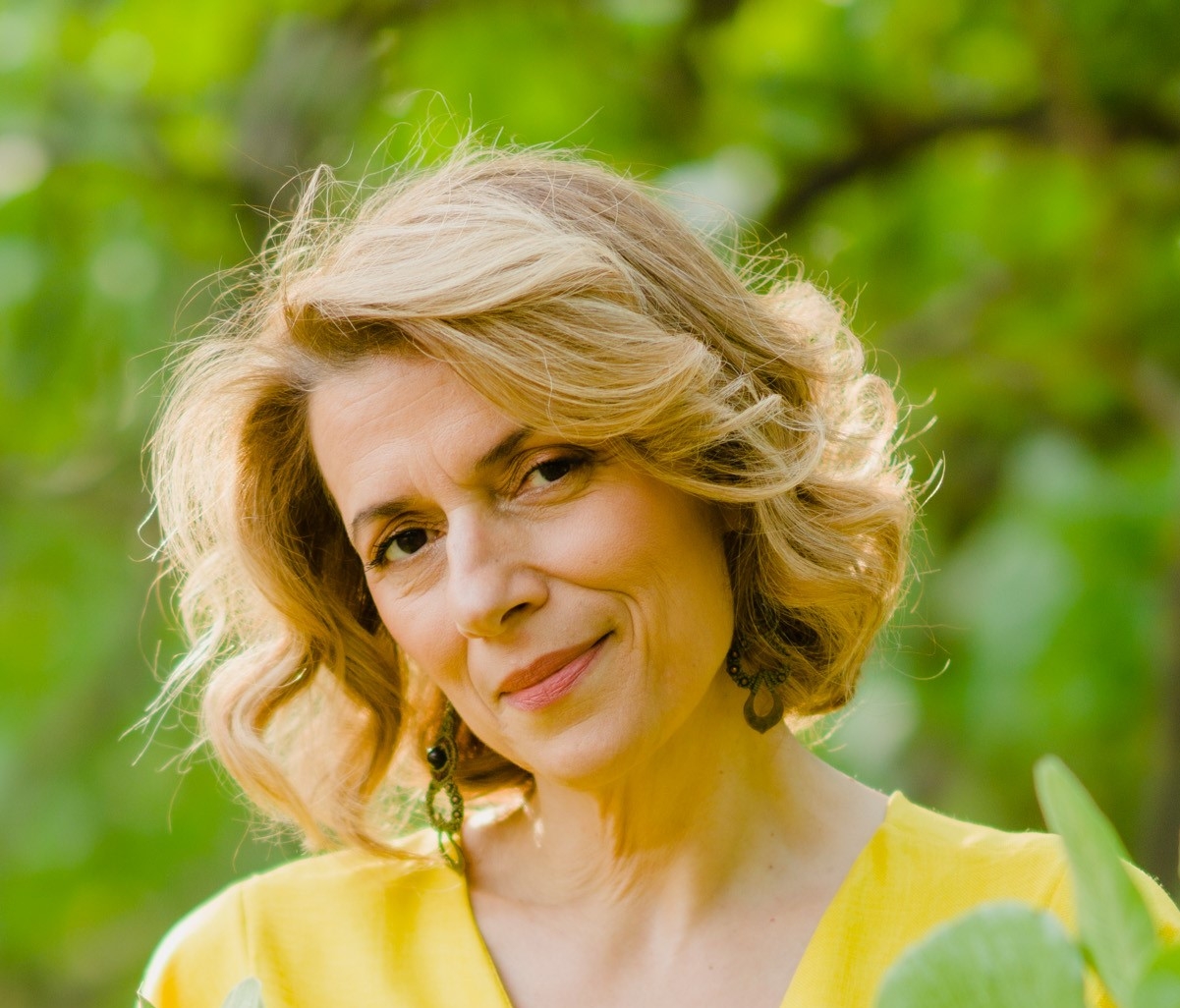1.Tell us more about ''The Smart Plan''. How and why did you started it?
-The Smart Plan is a calendar that helps you organize your day following a specific direction that brings you closer to your goals and dreams.
It starts with a series of guided coaching exercises, which encourage you to observe every aspect of your life, to realize how satisfied you are with everything you have, and to train your ability to improve what doesn't work using specific techniques. These exercises aim to stir up a way of thinking that challenges your routine, makes you remember, or discover what you really want; and encourages you to think creatively, to be flexible and playful; to question second thoughts that keep you from creating a meaningful, joyful and successful life for yourself.
Tips and ideas help you be more productive, and manage your time effectively, to avoid distractions, find your personal pace and adopt a mindful and self-compassionate mindset. Lastly, it is a calendar designed to organize your week, and then each day, integrating the results of the coaching exercises, and to reflect on yourself and your progress.
Creating this journal was a process that took shape in parallel with my life these past few years, and was inspired from my personal biography. A couple of years ago, I reached a point in my life where I was feeling professionally and personally stuck; unable to move forward. I tried many approaches to find a way out that didn't really help, and at some point I discovered coaching. I read a lot, I did seminars, I searched online for inspirational sources, exercises and methodologies which motivational gurus generously share with the world, and I managed to feel better, and take the next step. I saw the financial crisis in Greece as an opportunity for a big change, and a couple of months later, I left Athens with a suitcase for Berlin.
With bad German, little money; but having the faith that everything will be all right, I started this journey. I could write a book about everything I experienced, but what is really important is that when doing some exercises systematically, I trained myself in a new way of thinking, and I created the life I want step by step. My profession and my passion is still design, focusing more on web and digital design; and in parallel, I decided to do a coaching training, which helped me shape the idea of The Smart Plan.
2. Why it is so hard for everyone to deal with time?
-Probably because time has been related to money. Living in an individualistic culture that supports success, we learn to emphasize achievement over connection, and adopt this time-is-money mindset. This makes us perceive time as the ultimate luxury, and try to make every moment count. Internet also gives the feeling that there are endless possibilities on how we should use our time. We so often and so easily compare ourselves to other people who “have it all”; and the social pressure to be intelligent, spiritual, successful and interesting—as well as sexy, stylish, and fit; apart from making us lose faith in ourselves, and doubt our own potential, it also puts us in this race against time.
3. Do you think social media has a negative effect in the way we use out time?
-Definitely! We have become addicted to our smartphones, and all the notifications we are receiving are usually distracting us even when we try to ignore them. They seek our attention, by creating a feeling of urgency, and in the end they consume our time.
We also hear a lot about FOMO, the Fear Of Missing Out; which is far from a good thing. So many people are more attached to their smartphones, and the concept that something is happening out there, and they are not informed, leads them to check social media again and again, so, they don’t feel left out. Most of us are addicted to this new habit, and it gets harder to find ways to break free from it.
4. What is thinking out of the box for you?
-There isn’t actually a box. I think what usually narrows our imagination, and keeps us from thinking creatively is the fact that we start thinking of a problem, and then try to find possible solutions, so, the problem is the basis and the heart of every thought. I try to think the other way round. Where do I want to end up, what is my ideal destination? And then built my way towards it. I like to visualize a lot, and use these images as a point of reference to design my next steps.
5.What is your everyday agenda and how do you combine your intense business life with your personal life?
-I start my day with a mindfulness exercise, have breakfast, and then go through my emails. Then I fill in my Smart Plan, and I start working. Being a freelancer makes it sometimes hard to manage my time, but I try to keep specific working hours. This is not always easy to accomplish, because there are times when I have a lot to do; and keeping my clients on schedule is my number one priority, and other times when things are quite loose. Being flexible with my time is one of the things I love about freelancing. I feel in control of how I manage my time. My work is not the most important thing in my life. I cherish my family life, my friends, and I enjoy time with myself, this is why I make sure to plan time at the beginning of every week for all these.
What helps me create some sort of work-life balance is self-reflection. I ask myself some questions in order to clearly evaluate how I am doing, and what areas I need to focus on more. This allows me to become aware of recurring problems, see the progress I've been making, and adjust my plan for experiencing the results I desire. That said, I don’t believe that achieving a perfect work-life balance is possible. I think there is always the element of loss in our lives, sometimes, one aspect of our lives will be ahead, other times, it will be behind.
6. Are you the type of character who would swim against the stream or would you rather be on the safe side?
-Tough question! :) I suppose I have been both. I believe I used to fear not being in the safe side, until I tasted the freedom of moving forward, embracing my fear, and all my discouraging thoughts. Additionally, like training a muscle, pushing my boundaries, taking risks and trying my luck more, is a process that shaped me during the years, and made me a stronger person. Still, I believe there is room for improvement. I always admired all the courageous people that talk open about sensitive topics, or stand up for their principles. People that create an impact on history, and inspire others to follow them. I believe these are those who truly swim against the stream, and such people are my role models.
7. Your next business goals?
-In parallel with creating The Smart Plan, I decided to join forces with a good friend and colleague of mine, to start a new business together. She also works as a designer in Berlin, and we decided to create a team of experts, and provide our customers all the services related to our projects. We created Fairworks, an innovative new company specializing in branding, digital experience and development. We aim to work exclusively with socially conscious businesses and non-profits; whose missions and methods we personally respect.
However, for now, family planning is my most important priority! I am expecting my daughter in February; so, I plan to spend the next months focusing on my family, and take a break from all business activities.
8. Do you think that we should all have big goals?
-Not really! We cannot even measure what a big goal is. A task is a huge challenge for one person, is the easiest thing to do for someone else; and vice versa. I think we only have one life to live, and we should make the best of it, create the best version of it. The time we have on earth is quite specific, and it is running fast, so whatever we wish, or dream to experience we might as well do it. We won’t be given a second chance.
9. What have been your learning milestones starting and growing your business?
-I learned that I have to practice, and evolve in many areas of expertise. Both being a designer and The Smart Plan project, have taught me that, the minute you decide to start your own business, you are responsible for absolutely everything that concerns your business. Communicating and trying to sell my services or product to prospect clients or buyers, creating a brand, updating it when needed, and promoting it in the social channels, being constantly informed about everything concerning taxes and legal topics, handling difficult clients or situations, planning my finances, so that I am managing my expenses even in dry periods, and spending time to stay updated on the latest trends, technologies etc. I learned to be more self-sufficient, but also to ask for help and outsource tasks. I learned to live with the concepts of failure and rejection, because they are part of the process. When you put yourself out there, you will be criticized, you will hear good and bad remarks, and you need to keep your cool and keep going.
10. Share with us your best tip about time management.
-Start your day accomplishing the most important task on your schedule. Many of us first address random easy tasks in our To-do list each day, because we have this feeling of getting things done when we feel busy, and we tackle many projects. The downside to this method is that, we end up feeling tired and overwhelmed because, we keep procrastinating what is really important. This important task can be an uncomfortable conversation, a boring project, and it can also be an action that is related to our broader goals, a step that brings us closer to making a dream come true.
Thinking proactively and tackling the most important task first, gives you a sense of satisfaction that the hard part of the day is over, and the feeling of accomplishment will boost you with energy throughout your day. Also, prioritizing the most significant task each day will help you focus on the things that really matter, and take you closer to what you want.










